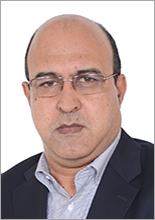Tunisian Financial Systems – The Non-Banking Sector
The nonbank financial sector is relatively limited. Tunisia has a modest insurance sector. The equity and fixed-income markets are still small, with a market capitalization equal to 24% of GDP, lower than in regional peer countries such as Jordan (112%) and Morocco (76%). The private equity industry remains marginal, and the leasing sector accounted for 15% of private gross fixed capital formation in 2010.
Insurance sector
In Tunisia, there are currently 22 insurance companies including 13 multiline companies; five specialized companies (two specializing in life insurance, one in export credit insurance, one in domestic credit insurance, one in reinsurance); and four offshore companies. According to the Tunisian Federation of Insurance Companies (Fédération Tunisienne des Sociétés d’Assurances, FTUSA). Tunisia’s insurance premiums totaled TD 1 billion (US$787.8 million) in 2010. Several institutions are engaged in the insurance sector in Tunisia as regulatory entities, but the most important institution is the General Insurance Committee, which is a central administration within the Ministry of Finance.
Pension funds
The pension fund in Tunisia is composed of two institutions: the National Social Security Fund (CNSS),which represents the private sector with 2.5 million workers affiliated (around 2 million are working and 0.5 million are retired); and the National Pension and Social Security Fund (CNRPS), which represents the public sector.
Capital Markets
The Tunisian financial market, organized since1994, comprises the Financial Market Board (Conseil Marché Financier, CMF), a stock exchange (Bourse des Valeurs Mobilières de Tunis, BVMT), and a central depository (Société Tunisienne Interprofessionnelle pour la Compensation et le Dépôt de Valeurs Mobiliers, STICODEVAM). In the capital market, there are three components in the Tunis Stock Exchange market—the principal market, the alternative market, and the bond market. Stock market capitalization, which represented almost 19.3% of GDP in 2012 (with a small number of listed companies at 59), is low compared to other stock markets in the region.
Alternative financial services
Investment capital (or private equity) and venture capital were established in Tunisia in the 1980s on the basis of regulations related to fixed capital investment companies (SICAFs). That framework was developed in 1993 through the creation of Risk Capital Investment Companies (SICARs). Indicators for 2011 show the country has more than 40 SICARS, 20 venture capital funds, and two startup funds (fonds d’amorçage). Through the end of 2010, capital investment had financed more than 2,000 companies, for a cumulative volume of a gross shareholding of TD 1 billion.[1]
Guarantee system
The guarantee system is managed by the Tunisian Guarantee Company (Société Tunisienne de Garantie, SOTUGAR), a stock corporation 37% of which is owned by the state and 63% of which is owned by the banks, and which specializes in managing the system of guarantees for small and medium enterprises.
[1] OEDC investment policy review Tunisia, 2012. http://www.oecd.org/countries/tunisia/tunisia-investmentpolicyreview-oecd.htm
Sofiane Ghali is a full professor of economics and Dean of the Higher School of Economic and Commercial Sciences of Tunis (ESSECT, University of Tunis). His fields of specialization are in the areas of industrial organizations and international economics. He has published papers in internationally refereed journals and contributed to several studies for Tunisian national agencies and organizations such as the ITCEQ and IACE, and international organizations like the World Bank, OECD, EIB, FEMISE, ERF, and GDN. He holds a Ph.D. in Economics.
Sami Rezgui is a full professor at the University of Manouba in Tunisia. He is specialized in the areas of macroeconomic policies, international economics, industrial economics and innovation policy. He is author of several research papers published in international journals and he is also consultant and contributor to various reports for international agencies (OECD, World Bank, Femise, Mediterranean Institute) and national institutions (Institute of quantitative Studies, Arab Institute of Business Managers, Ministry of Trade, Investment Agency Promotion). He Holds a Ph.D. in Economics.
